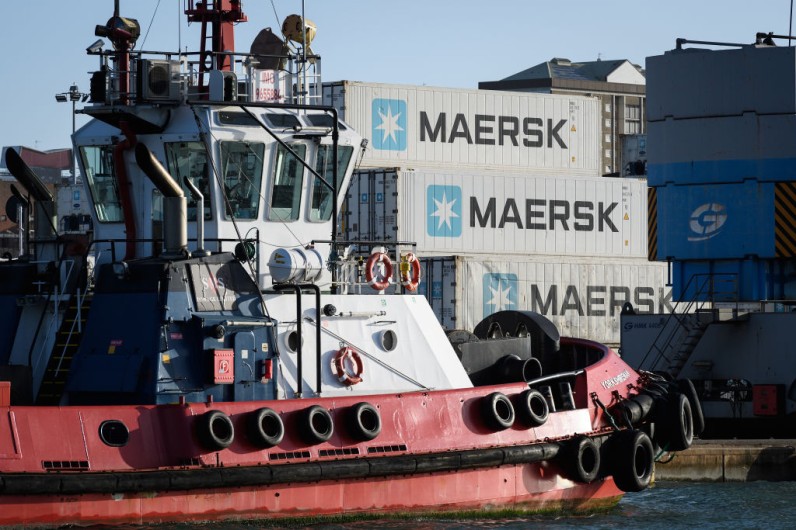Shipping giants Maersk and Hapag-Lloyd have announced the temporary suspension of their container ship travel through the Red Sea and the Bab el-Mandeb Strait in the Middle East, citing security risks.
According to CNBC, the suspension came following a series of attacks on commercial vessels in the area by Iranian-backed Houthi militants based in Yemen.

Maersk, Hapag-Lloyd Pause Red Sea Travel Amid Houthi Attacks
Maersk is the world's second-largest container shipping company and is responsible for facilitating 14.8% of global trade. Now, it has opted to reroute its vessels away from the Red Sea. The Houthi group, known for its affiliation with the Palestinian militant organization Hamas, has reportedly targeted ships destined for Israel.
Expressing deep concern over the heightened security situation in the southern Red Sea and Gulf of Aden, a Maersk spokesman highlighted the alarming nature of recent attacks on commercial vessels in the area.
"Following the near-miss incident involving Maersk Gibraltar yesterday and yet another attack on a container vessel today, we have instructed all Maersk vessels in the area bound to pass through the Bab al-Mandab Strait to pause their journey until further notice," the spokesman told CNBC in an email on Friday.
The Danish company has assured the public that additional details regarding future steps will be communicated in the coming days. Hapag-Lloyd, another major player controlling approximately 7% of the global container ship fleet, has also responded to the security risks.
The German company also informed CNBC Friday about temporarily pausing all container ship traffic through the Red Sea until Monday, with a reassessment planned afterward.
How Houthi Attacks on Ships in the Red Sea Could Affect Global Trade
The Bab el-Mandeb Strait, situated between the Horn of Africa and the Middle East, is a vital maritime route connecting the Red Sea to the Gulf of Aden and the Arabian Sea, ultimately leading to the Indian Ocean.
This strategic waterway is extensively used by container ships and facilitates the export of petroleum and natural gas from the Persian Gulf. So do food products such as grain and palm oil, among others, brought over on container ships, which are most of the world's manufactured products.
According to the Associated Press, the Red Sea is a major global trade artery, with about 10% of the world's trade passing through it. Houthi militants have intensified attacks on ships in the Red Sea amid the Israel-Hamas conflict, particularly targeting Israeli-linked vessels.
Noam Raydan, a senior fellow at the Washington Institute for Near East Policy, told AP that some Israeli-linked vessels have started taking the longer route around Africa and the Cape of Good Hope, which lengthens the days of the trip from 19 to 31 depending on the vessel speed, adding delays and increasing costs.







Join the Conversation